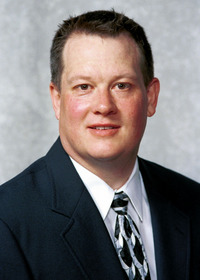Information Possibly Outdated
The information presented on this page was originally released on March 15, 2007. It may not be outdated, but please search our site for more current information. If you plan to quote or reference this information in a publication, please check with the Extension specialist or author before proceeding.
Prepare areas now for summer gardens
MISSISSIPPI STATE -- The array of available plants, fertilizers, treatments and tools can overwhelm beginning gardeners, but there are ways to simplify the process and give plants a better chance of success.
Mengmeng Gu, ornamental specialist with the Mississippi State University Extension Service, said whether planting vegetables or ornamentals, take a soil test first of the garden spot.
“When you get the soil tested, you will know whether you need to do some soil amendment,” Gu said. “Not all soil in Mississippi is good for gardening, and the soil test will tell you what you need to add to improve it before planting vegetables or ornamentals.”
The MSU Extension Service's Soil Testing Lab charges $6 per sample to provide a pH, nutrition and fertilizer analysis and recommend action based on what will be planted. The lab is located on the MSU campus, and results are available in four to five business days.
Garden spots must have good drainage, but not dry out too quickly. If the area stays wet, create elevated garden rows to aid plant growth.
“A simple way to combat clay soil with bad drainage is to use a hoe, rake or tiller to pull the soil into raised rows about 10-12 inches across on the top. Plant your vegetables on top of the raised rows for better drainage,” Gu said.
Since most vegetables like full sun, choose a spot that will not be shaded in summer.
“There are some plants that can tolerate shade, but the more sun the better,” Gu said. “Most vegetables are sun-loving plants, and the more sun they get and the better they can grow.”
When preparing to plant ornamentals, consider the landscape setting in which they will be used. Gu said ornamentals are pickier than vegetables. Choose varieties that perform best in that area's combination of light conditions and soil.
Donna Beliech, Extension area horticulture agent working from Rankin County, said most new gardens benefit from the addition of organic matter. It provides slow-release nutrients, helps loosens dirt clods, increases the earthworm population, makes weeds easier to pull and reduces soil compaction.
“Organic matter can be decomposed leaves, grass clippings, animal manure, sawdust, rice hulls, cotton gin trash or kitchen scraps, but it must be decomposed,” Beliech said. “Organic compost that is not fully decomposed will go through a heating process as it breaks down and damage plant roots. Well-decomposed compost is dark in color and free of unpleasant odors.”
Many Mississippians count Easter as the starting point for their garden and consider themselves late if they don't have their summer vegetables in the ground by that time. Beliech said cool snaps are possible after this spring date.
“Don't plant so much out there in your garden that you can't cover it up if we have cool weather or a cold wind,” Beliech said.
Weeds are a constant problem in Mississippi. Beliech warned gardeners against adding pre-emergence herbicide to new gardens if any seeds will be planted.
“Pre-emergence herbicide doesn't know the difference between a good seed and a bad seed,” she said.
Poast is a good herbicide to control grassy-type weeds in vegetable gardens, but keep it away from corn, which is in the grass family. The best cure for broadleaf weeds is a hoe or a good layer of mulch. Mulch has the added benefit of keeping soil moist, and Beliech said newspapers, hardwood leaves, pine straw and many other materials make good mulch in vegetable gardens.
Plan to water the garden with soaker hoses if possible. This delivers water directly to the roots and prevents water from splashing up from the ground onto leaves, potentially spreading soil-borne disease such as tomato blight or leaf spot.
“Place the soaker hoses right next to the plants and put mulch on top,” Beliech said.
When using liquid fertilizers, apply these as close to the base of the plant as possible rather than sprinkling it over the top of the plant.
“If the good Lord had meant for plants to absorb fertilizer through their leaves, he would have put roots up there,” Beliech said.
Space plants according to recommendations, as overcrowding increases disease problems and decreases productivity.






